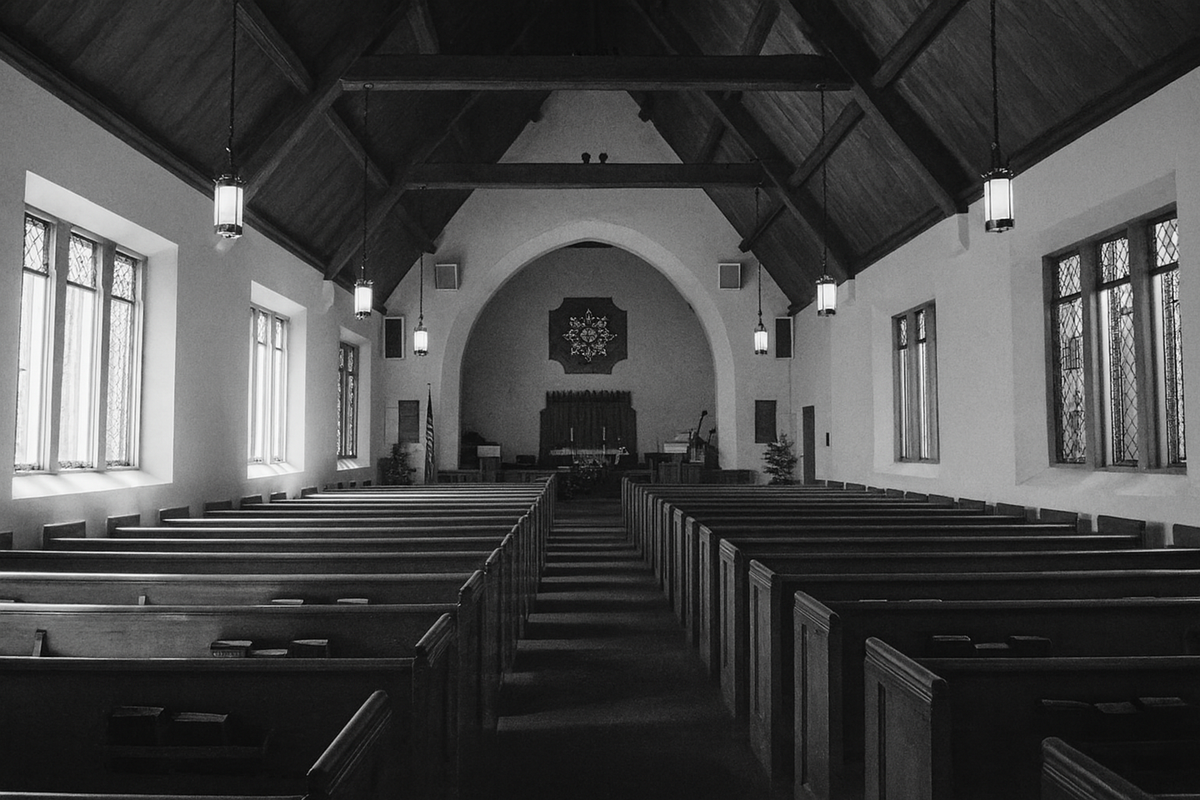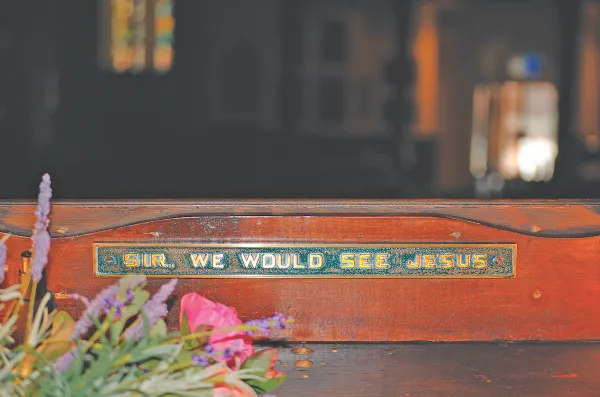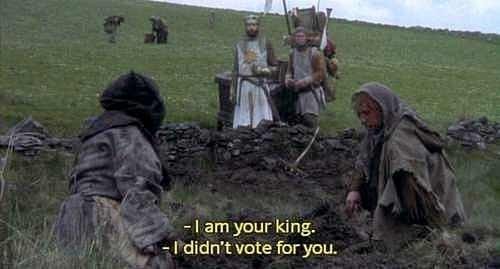The Church Beyond Sunday

I’ve loved Hong Kong for as long as I can remember.
If you counted the sum total of all the time I’ve spent there, it would only add up to a bit over a year. But my heart constantly longs for it like a second home.
I was there for the first time in 1997, just months before the handover, when China stood there and made the even-then-dubious promise that Hong Kong could keep its systems, its freedoms, its way of life.
Keep your currency.
Keep your language.
Keep your Chief Executive.
You can relax—we’re committed to: 五十年不變
“Fifty years, no change.”
After that first experience, I returned for weeks or months at a time in 2001–2002, 2005, 2009, 2018... And every time I’ve gone back, it’s felt less like Hong Kong and more like the mainland.
Fast forward to 2014. Beijing told Hong Kong it would finally have democracy. Citizens would be able to vote for their Chief Executive. But there was a catch: they could choose... between one of the two government pre-approved candidates. On the surface it sounded like democracy. In practice, it was control dressed up as choice.
That tension sparked a 79-day protest that came to be called “the Umbrella Revolution.” I’ll never forget the ache of watching it unfold, because it felt like something precious was being lost.
The people of Hong Kong protested when they were force-fed an illusion. It looked like a choice on paper, but in reality, either option meant the same result.
And in 2020, the Church faced its own version of that same illusion.
When the pandemic hit, and our government mandated closures of schools, restaurants, and yes, churches, it looked like we were deciding between two very different options:
- Shut down and move everything online.
- Or defy the government and keep meeting anyway.
Those paths seemed worlds apart. In fact, we believed they were so different that we split churches over them. We fractured friendships. We turned on each other.
But at their core, both “choices” were really the same thing: preserve the weekly worship event at all costs. Livestream or lawsuit; different strategies, same assumption. The once-a-week gathering was non-negotiable.
And with all our energy consumed with the question of how to preserve what we did once per week at the building, we never stopped to ask the deeper question:
If the building is closed, can we still be the church?
Ecclesiology Exposed
When the pandemic shut down public gatherings in 2020, most churches scrambled to get online. And not just the multi-service, multi-campus, tech-savvy megaministries.
Congregations of 100. Churches of 30 or 40. Rural chapels. Storefront ministries. Everyone joined the fray. Tripods appeared in sanctuaries. Worship leaders learned about latency and compression. Pastors became broadcasters overnight, navigating Facebook Live, YouTube, and spotty Wi-Fi – all while preaching to empty rooms.
But underneath all the scrambling and innovation, something else was happening.
Our ecclesiology was being exposed.
And very few of us had the time, space, or clarity to notice.
Did we lose the Church in 2020? No. Jesus builds His Church, and the gates of hell will not prevail against it.
But we did lose something: the façade that in practice we really believed church was more than a once-weekly, ninety-minute gathering.
Instead of seizing this black-swan event as an invitation and opportunity to rediscover a more biblical, embodied, disciple-making vision of church, we mostly poured our energy into preserving what we already had—even if it meant putting the entire experience onto a screen.
For the most part, we didn’t ask:
“What does it mean to be the church when the building is closed?”
We asked:
“How do we make the service available by 10:30?”
The Two Ways
Most earnest, Bible-believing churches fell into one of two broad camps. Let’s call them, for simplicity’s sake, the Romans 13 crowd and the Acts 5 crowd.
The Romans 13 crowd emphasized submission to governing authorities - reasoning that if Christians were called to honor the Roman Emperor when the Caesar was that psychopath Nero, surely we could comply with a mask mandate.
The Acts 5 crowd emphasized resistance - believing that governmental restrictions of any kind on worship were an overreach, and that we were bound to declare with the apostles: “We must obey God rather than men.”
Both had valid, Biblical, theological grounding. In most cases, I believe both camps were genuinely seeking to honor God—they just emphasized different biblical priorities.
But in too many cases, the debate fractured churches, severed friendships, and led to an alarming degree of tribalism. We became consumed with arguments about whether we could gather. How far to stand apart. What to do about masks. Whether the government should be allowed to tell us anything in the first place.
And the saddest part was when this degenerated into finger-pointing and name-calling.
“You insist on gathering like that, and you’re going to kill grandma. Haven’t you read how we’re supposed to love others?”
Was met with:
“I can’t believe you bowed to Caesar so quickly. How can you just stay home while evil triumphs?”
As divided as things looked (and there was very real division), the great irony is that both sides were united in their determination to focus almost entirely and exclusively on that once-weekly ninety-minute meeting.
As vehemently as each side held to their perspective views, we all somehow managed to miss the fact that we were arguing over different sides of the same coin.
Meanwhile…
Whether we fought to stay open or scrambled to go online, our energy still revolved around Sunday. (Or Saturday, for our Adventist friends.) On preserving the stage. On making sure the sermon went out, regardless of who was actually present.
We weren’t asking how to be the church. We were asking how to keep the service going.
We’ve built our metrics, our rhythms, and our entire sense of success around a single gathering, once a week.
And friends, if church is primarily about attendance and content, then content on demand, available to the whole world should feel just fine, shouldn’t it? Can we really be shocked to find that so many have slipped comfortably into “catching it online”?
But Church was never meant to be consumed.
It was never meant to be watched—not on the internet, not on the television, and not from a pew as a passive observer.
It was never meant to be reduced to content delivery.
Church is not just a service. Church is a group of people, called out by Jesus, to live life-on-life under the authority of His word.
Church is shared meals and tearful prayers and awkward conversations and ordinary presence.
Church is apprenticeship to Jesus that costs something.
Church is not a service we watch, or even simply attend.
Church is a body we belong to.
We used to know this. We used to talk about “getting outside the four walls of the church.” “Get the salt out of the saltshaker” and such.
But then once we were told to, our attitude suddenly became,
"You can't make me."
A Gift
The Pandemic never posed any threat to the Church of Jesus Christ. The government could come through and by force, close the doors of every church building in America. And the Church would still live.
Truth be told... something like that may actually cause the church to thrive.
I constantly tell people I believe the Church in America lost an opportunity during the pandemic; an opportunity to think beyond those 90 minutes per week and ask deep questions about who Christ calls us to be. It feels like in so many ways, we missed that opportunity.
But the more I think about it, we still have time.
We still have time to rediscover what the Church was always meant to be: a family who breaks bread together, a body where every part matters, a people who pray for one another, carry one another’s burdens, and follow Jesus side by side in the joys, trials, griefs, celebrations, and even ordinariness of life.
Please don't misunderstand. I love the weekly gathering. I'm in favor of the weekly gathering. I believe in corporate worship. I believe in public prayer. I believe in congregations gathering to be under the preaching of God's word. I'm committed to ALL of that.
But we are not defined by keeping the weekly event alive.
We are defined by belonging to Christ and to one another. We are His body, forgiven, Spirit-filled, and sent into the world.
So here’s the question before us:
Will we settle for preserving the weekly show?
Or will we embrace the costly, beautiful calling of being the Church – beyond Sunday?



